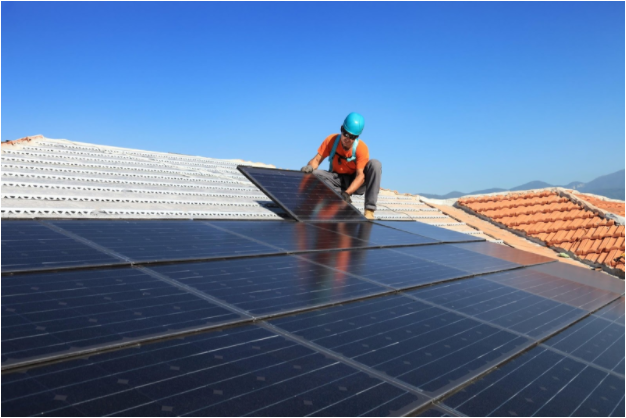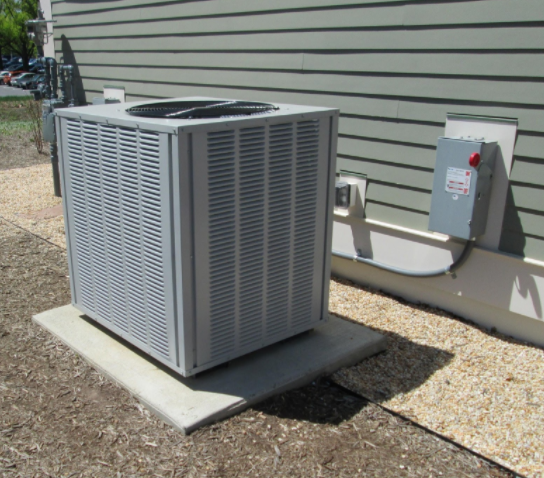If you’re interested in saving money on your electric bill, there are two popular ways to do it. One way is to invest in a solar energy system. The other way is to reduce your energy consumption by making upgrades.
Comparing solar vs. energy efficiency at a high level
Investing in solar energy tends to cost about as much as investing in energy efficiency, though the range of possibilities associated with both projects means that in some cases, you could spend more on one than on the other. The average three-person Australian household consumes about 5,000 to 6,000 kilowatt-hours each year. To produce enough energy to meet your average daily electricity needs, you’ll probably need a solar energy system of at least 3 kilowatts (3kW).

The cost of installing a system this size hovers around $5,000 after subtracting the federal incentive and adding GST. If you were to install 10 energy efficient windows, on the other hand, you’d spend about $6,000 to $8,000. Adding more insulation to your home could cost as little as $1,500, though a full removal of old insulation and installation of new installation could reach $4,000. And if you install an efficient HVAC unit, you’ll probably pay around $2,600 to $6,600 up front.
The amount of money you’ll save by installing solar panels depends on your location, the way you install the panels, and the size of your solar system. The average cost of energy produced by solar power is around $0.16 per kilowatt-hour over the lifetime of the panels. When you factor in the annual increases in energy costs (including a 183 percent increase over the past two decades), you likely stand to save thousands of dollars. A homeowner in Perth, for instance, would save about $1,500 per year on their energy bill. That’s a total of more than $37,000 over the 25-year lifetime of the panels. A homeowner with an identical system and identical energy needs in Sydney would save even more- $1,700 per year, or $42,500 over 25 years.
 Assessing and comparing different energy efficiency options
Assessing and comparing different energy efficiency options
The amount you can save through energy efficiency improvements also varies substantially. Savings depend on the condition and location of your home, as well as on the type of improvement you undertake. For instance, if you improve your home’s insulation you might spend around $2,000, but you could save a combined $450 annually on your energy bills.
If you invest in a more efficient heating and cooling system, you’ll usually spend more up front in the form of a higher purchase price, but you’ll also save more on your energy bill in the long run. Investing in a wall-hung unit with an Energy Rating Label of seven stars for cooling and heating efficiency will cost $982 over a 10-year span. But a similar unit that has just three and a half stars for heating and cooling will add more than $1,500 to your energy bill over the same period. Savings could be even more substantial if you’re upgrading a system that’s more than 15 years old.
But not all home efficiency upgrades will offer such a generous return on investment. Upgrading your windows, for instance, can be expensive and is often not cost-effective (though doing so could add value to your home and make it more attractive).
Combine the two: Best of both worlds?
Of course, the best of both worlds would be to install both a solar energy system and improve your home’s energy efficiency. Doing both would allow you to maximize your feed-in-tariff payouts, dramatically reduce your carbon footprint, and dramatically reduce your energy bills.
If you’re only interested in choosing one or the other, however, installing a solar energy system is probably your best bet since it has the potential to lower your energy bill to zero (especially if you’re in a net metering arrangement). Improving your home’s efficiency, on the other hand, can only ever reduce your energy bill. But if you have limited funds, taking on some smaller, less expensive energy efficiency projects-or even just upgrading your home’s appliances with more energy-efficient versions-can help you better manage your household energy consumption.
Before investing in an energy efficiency project, contact a home energy analyst to evaluate your home. The analyst can determine which upgrades you could gain the most from and how much each would cost. Some electric utilities even offer home evaluation services for free.
If the analyst finds that your home is already running at or close to peak efficiency, the benefits of a solar panels are even more likely to outweigh any potential home efficiency upgrades.
- Trump’s solar panel tariffs: Impact may not be huge for US homes - 28 January, 2018
- Reduce vs. produce: When to invest in solar and when to invest in energy efficiency projects - 7 December, 2017